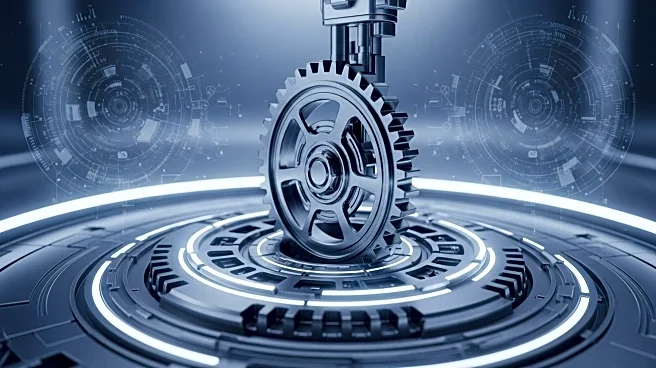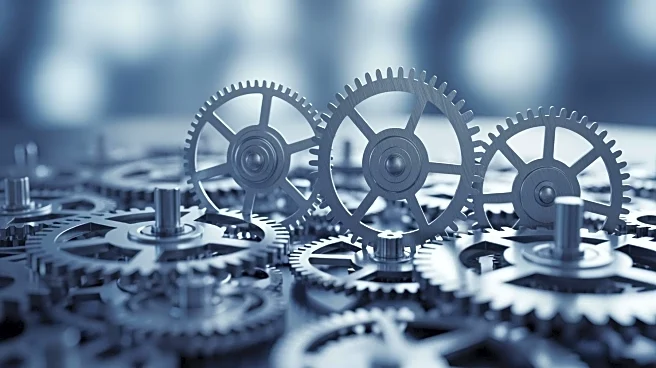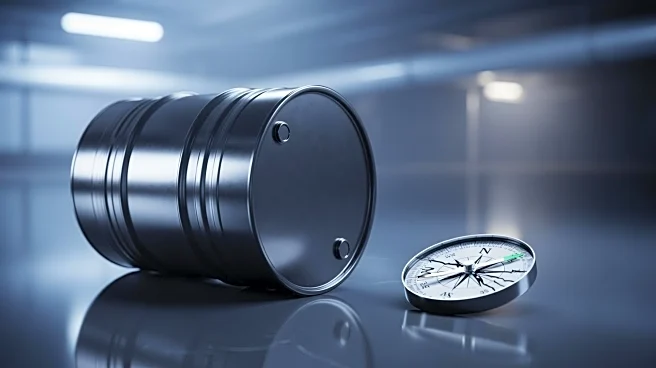What is the story about?
What's Happening?
A study introduces a hierarchical Bayesian physics-informed neural network (HBPINN) to optimize gear grinding process parameters. This model integrates a hierarchical Bayesian framework with a physics-informed neural network to analyze parameter uncertainties and improve predictive accuracy. The approach uses Gaussian Process Regression (GPR) for data augmentation, enhancing the model's generalization ability. The study establishes a multivariate regression function to relate process parameters to surface roughness, creating a composite loss function that combines physics-based and data-driven elements. This method aims to improve gear grinding efficiency by accurately predicting and adjusting process parameters.
Why It's Important?
The development of HBPINN represents a significant advancement in manufacturing technology, potentially increasing efficiency and reducing costs in gear production. By accurately predicting process parameters, manufacturers can optimize operations, reduce waste, and improve product quality. This innovation could lead to more sustainable manufacturing practices, as precise control over grinding processes minimizes material usage and energy consumption. The integration of machine learning with traditional manufacturing processes exemplifies the growing trend towards smart manufacturing, which could enhance competitiveness in the industry.
What's Next?
Further research and development could expand the application of HBPINN to other manufacturing processes, enhancing overall industry efficiency. Collaboration between academia and industry may accelerate the adoption of this technology, leading to widespread improvements in manufacturing practices. Training programs for engineers and technicians on the use of advanced neural networks could facilitate integration into existing systems. As the technology matures, it may influence policy decisions regarding manufacturing standards and practices.
Beyond the Headlines
The use of advanced neural networks in manufacturing raises questions about the future workforce, as automation and AI could shift job roles and require new skill sets. Ethically, the reliance on AI for decision-making in manufacturing processes necessitates transparency and accountability to ensure fair and safe practices. Culturally, the integration of AI into traditional industries may challenge existing norms and require adaptation to new technologies.















